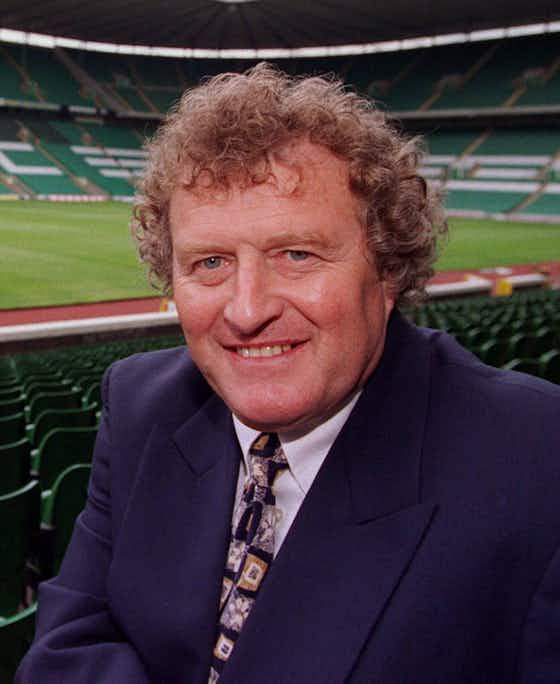The Celtic Star
·23 luglio 2025
On this Day, 1997 – Celtic win at Ninian Park, turmoil behind scenes

In partnership with
Yahoo sportsThe Celtic Star
·23 luglio 2025

On this day, 23 July 1997, Celtic began their UEFA Cup campaign with a routine 3–0 win over Welsh side Inter Cable-Tel at Ninian Park. The result was never really in doubt—but what made the night remarkable was not what happened on the pitch, but everything swirling around the club off it.
The build-up to the tie was chaotic. Celtic were a club in open conflict with their biggest names. Paolo Di Canio was in Italy, refusing to return to training without a £20,000-a-week deal. The club held firm, insisting he would not play, would not be sold, and was now in breach of contract. Di Canio responded with a doctor’s note for stress leave.
Jorge Cadete, similarly absent, was also claiming stress. Club doctor Jack Mulhearn and director Eric Riley had flown to Portugal to assess him, with a transfer looking inevitable.
Elsewhere, Peter Grant’s planned move to Wolves had collapsed in acrimony, the midfielder declaring he would “never trust Mark McGhee again.” New manager Wim Jansen insisted the team hadn’t been affected by the unrest. Captain Tom Boyd quietly contradicted that.
Despite the turmoil, Jansen’s short-handed side delivered. Jackie McNamara set the tone early, weaving into the box to win a penalty that Andreas Thom dispatched with ease.

Andy Thom scores. Photo The Celtic Wiki
Celtic dominated possession, but it wasn’t until the stroke of half time that Tommy Johnson pounced on a loose ball to make it 2–0. Late in the second half, Danish midfielder Morten Wieghorst rose to head in a third.

Tommy Johnston scores. Photo The Celtic Wiki
Celtic’s makeshift squad had every excuse to falter. Johnson, Stubbs, and Jackson played through knocks.
Gordon Marshall started in goal with Stewart Kerr injured. No fewer than seven first-team players were missing—Malky Mackay was suspended, while Phil O’Donnell, Chris Hay and Enrico Annoni were nursing various ailments. Reserve players like Barry Elliot, John Paul McBride, and Andy McCondichie were drafted into the matchday squad.
The fans, however, were undeterred. Nearly 8,000 made the trip to Cardiff, raising the roof inside Ninian Park and enjoying a controlled display from a team refusing to be dragged down by the soap opera around them.

The occasion was given added poignancy by the memory of Celtic legend Jock Stein. This was the club’s first visit to Ninian Park since that night in September 1985 when Stein tragically passed away just after guiding Scotland to the World Cup finals. A minute’s silence was impeccably observed, and wreaths laid in tribute to Scottish football’s greatest manager.

Post-match, Jansen was measured in his praise. “We scored at the right moments,” he said. “We tired in the second half and were maybe over-cautious, but we controlled the game.”
Cable-Tel’s manager George Wood was a wee bit more colourful: “My lads must’ve gone through 20 toilet rolls beforehand… To only lose 3–0 to a side of Celtic’s class is no disgrace.”
Behind the scenes, Murdo MacLeod had just been promoted to assistant manager, with Jansen quietly shaping his backroom staff. The Dutchman was also laying the groundwork for a rebuild.
Henrik Larsson had just won his freedom from Feyenoord in a tribunal decision and was free to negotiate. Though ineligible for this tie, he was expected to sign.
Rumours swirled about other targets too: Craig Burley from Chelsea, Alessandro Calori from Udinese, Ulrich van Gobbel from Southampton.
Even Brian McLaughlin’s night took a turn—he flew home mid-trip after his wife went into labour with their second child.
In many ways, this win was an early sign of Celtic’s resilience in what would become one of the most significant transitional seasons in our modern history. Amid the noise, legal threats, contract stand-offs, and public divisions, Celtic just went about their jobs..
And, remarkably, despite the summer disarray, Wim Jansen would go on to achieve something truly historic. Celtic won the Scottish Premier Division in May 1998, stopping Rangers from securing a record-breaking tenth league title in a row.
It was one of the most important titles in Celtic’s history—restoring pride, ending a decade-long title drought, and preserving the legacy of the club’s nine-in-a-row heroes from the Stein era.
On the same ground where Stein took his final steps, Celtic honoured their past—and quietly began a journey toward redemption.
*Thanks to the brilliant Celtic Wiki for providing invaluable historical photos and detailed match information.
Niall J
Thank you to everyone who has already pre-ordered the late David Potter’s last ever Celtic book, Celtic in the Eighties, which will be published on the fifth day of September by Celtic Star Books. The link to pre-order your copy is below…
Celtic in the Eighties by David Potter, out 5 September 2025. Available to pre-order now.
More Stories / Latest News






























































